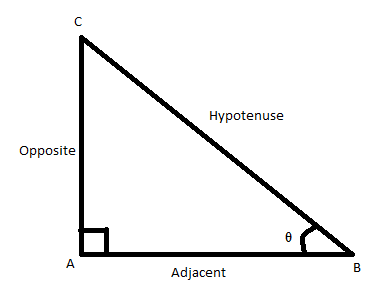Question
Question: How do you simplify \[\left( {1 + \cos x} \right)\left( {\cos ec x - \cot x} \right)\]?...
How do you simplify (1+cosx)(cosecx−cotx)?
Solution
In this question, we have to simplify the given trigonometric expression.
First we remove the bracket and multiply all the terms with each other. Then we need to simplify each term with the help of trigonometric formulas for the second term .By simplifying the expression we will get the required solution.
Formula used: i)cosecx=sinx1
ii)cotx=sinxcosx
Complete step by step solution:
It is given that, (1+cosx)(cosecx−cotx).
We need to simplify (1+cosx)(cosecx−cotx).
To simplify the given expression we need to remove the bracket and multiply all the terms with each other.
⇒(1+cosx)(cosecx−cotx)
⇒1×cosecx−1×cotx+cosx×cosecx−cosx×cotx
Now in the third and fourth term using the trigonometric formula cosecx=sinx1 and cotx=sinxcosxwe get,
⇒cosecx−cotx+cosx×sinx1−cosx×sinxcosx
Again simplifying with the help of trigonometric formula cotx=sinxcosx, we get,
⇒cosecx−cotx+cotx−sinxcos2x.
⇒sinx1−sinxcos2x
On using the trigonometric formula cosecx=sinx1
⇒sinx1−cos2x
Also we know that,sin2θ+cos2θ=1, using this we get,
⇒sinxsin2x
On cancel the term and we get,
⇒sinx
Hence simplifying (1+cosx)(cosecx−cotx), we get sinx.
Note: Trigonometric expression:
Sin Cos formulas are based on sides of the right-angled triangle. Sin and Cos are basic trigonometric functions along with tan function, in trigonometry. Sine of angle is equal to the ratio of opposite side and hypotenuse whereas cosine of an angle is equal to ratio of adjacent side and hypotenuse.
sinθ=HypotenuseOpposite side
cosθ=HypotenuseAdjacent

In mathematics, the trigonometric functions are real functions which relate an angle of a right-angled triangle to ratios of two side lengths. They are widely used in all sciences that are related to geometry, such as navigation, solid mechanics, celestial mechanics, geodesy, and many others. The most widely used trigonometric functions are the sine, the cosine, and the tangent.
